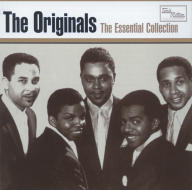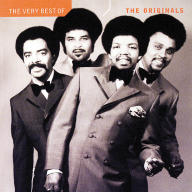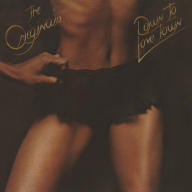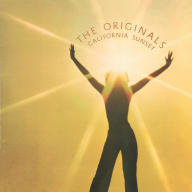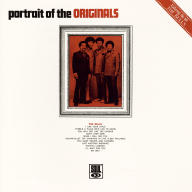Gorman finally resurfaced in 1964 alongside songwriting partner Bob Hamilton on the Motown rival Golden World with the Reflections' blockbuster (Just Like) Romeo and Juliet. The following year, he cut a pair of solo singles, In a Bad Way and Take Me Back, for Golden World's sister label, Ric-Tic. When Gordy acquired Golden World's holdings Gorman was absorbed back into the Motown ranks, and in 1966 his deep, stirring bass vocal was added to the lineup of the Originals, a new vocal group also comprising lead tenor C.P. Spencer, second tenor Hank Dixon, baritone Walter Gaines, and albeit briefly, Joe Stubbs, brother of the Four Tops' renowned lead Levi Stubbs, who exited to pursue a solo career in the wake of the Originals' debut release, a rendition of the Leadbelly perennial Goodnight Irene. The remaining quartet spent the next two years in search of a hit, contributing backing vocals to sessions spotlighting Stevie Wonder and David Ruffin. After a long hiatus from headlining, the Originals finally issued their second single, You're the One, in 1969, quickly followed by the title track from their debut LP, Green Grow the Lilacs. Neither record charted, but the Originals did capture the attention of Motown superstar Marvin Gaye, who teamed with wife Anna to write the soulful ballad Baby I'm for Real. After topping the RB charts, the single crossed over to pop radio, ascending to the number 14 spot. Gaye also delivered the Originals' luminous follow-up, The Bells, which reached the RB Top Five and fell just shy of the pop Top Ten in 1970. The group closed out the year with two minor chart entries, We Can Make It Baby and God Bless Whoever Sent You.
The Originals' commercial fortunes nosedived in the years to follow as singles like 1971's Keep Me and 1972's I'm Someone Who Cares failed to chart. C.P. Spencer exited the lineup soon after and was replaced by lead tenor Ty Hunter. The change did nothing to improve the Originals' chart outlook, however, and efforts like 1973's Be My Love and 1975's Good Lovin' Is Just a Dime Away earned little attention at radio or retail. When Motown relocated its production facilities from Detroit to Los Angeles, the group followed and in 1976 teamed with Lamont Dozier for the LP Communique, topping the disco charts with the dancefloor classic Down to Love Town (the first-ever 12" single released via the Motown imprint). The follow-up, (Call on Your) Six Million Dollar Man, flopped, however, and in 1978 the Originals ended their long relationship with Motown, signing with Fantasy for Ladies (We Need You). By the time the group landed with the independent Phase II label for the 1981 album Yesterday and Today, Spencer was back in the lineup. The album was also noteworthy for its inclusion of the Originals' version of Please Mr. Postman, but otherwise it generated minimal interest. Apart from a subsequent remake of Baby I'm for Real, the group's recording career essentially ground to a halt by the mid-'80s, although they continued touring for years to follow. In 1997, Gorman also issued a solo album, It's All About My Love. Spencer died of a heart attack on October 20, 2004. Gorman lost his battle with lung cancer on June 13, 2006. ~ Jason Ankeny, Rovi



